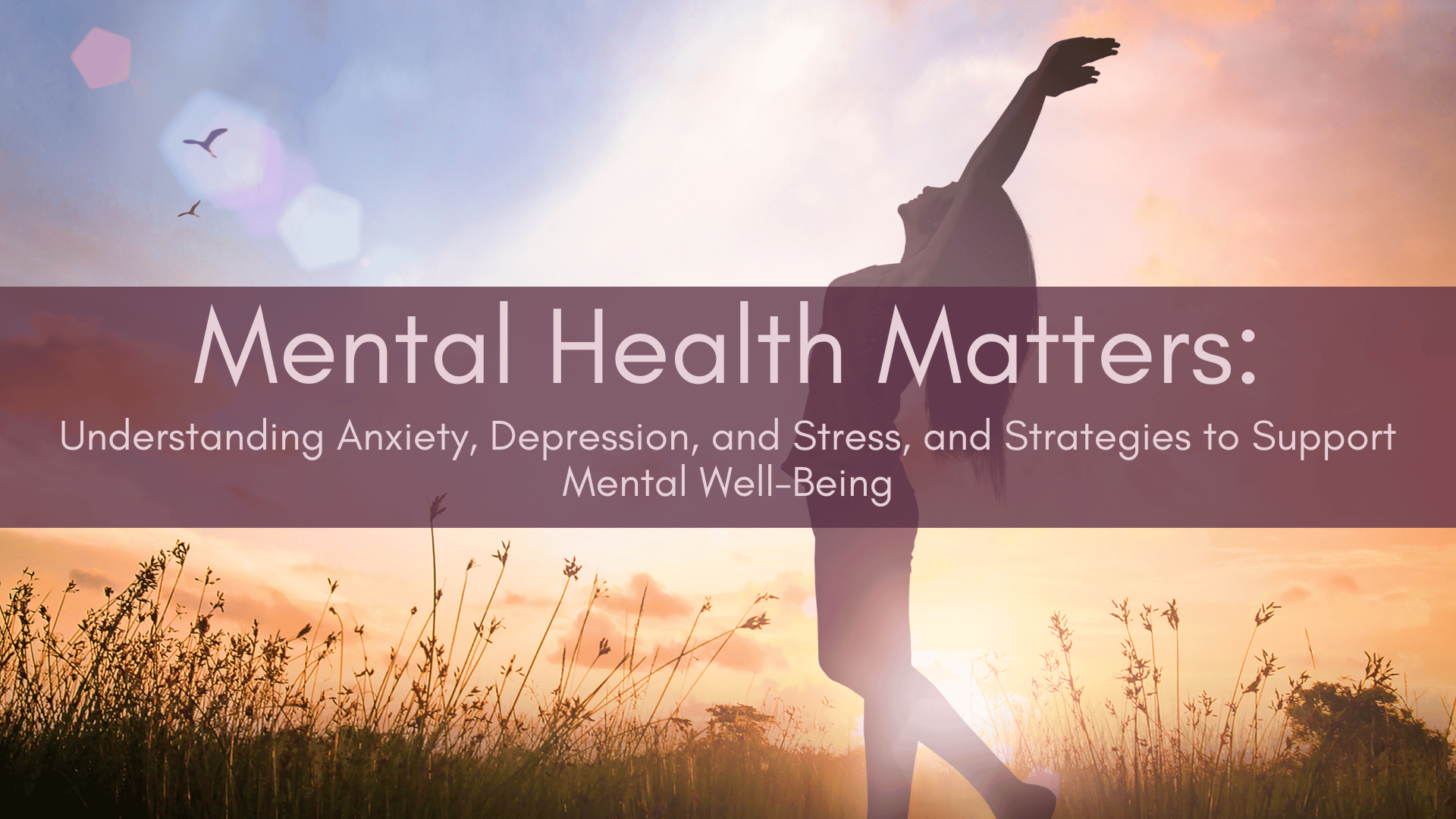Mental health is a critical aspect of overall well-being, yet it’s often overlooked or stigmatized. Anxiety, depression, and stress are common mental health issues that millions of people struggle with worldwide. The impact of these conditions can be profound, affecting one’s emotional, cognitive, and physical well-being. In this article, we will explore anxiety, depression, and stress, and discuss strategies to support mental health and well-being.
Anxiety is a normal human emotion that can be helpful in certain situations. However, when anxiety becomes excessive and interferes with daily life, it may be a sign of an anxiety disorder. Anxiety disorders are the most common mental health disorders, affecting approximately 40 million adults in the United States alone. Symptoms of anxiety may include persistent worry, restlessness, irritability, difficulty concentrating, and physical symptoms such as increased heart rate and sweating.
Depression is a mood disorder that can affect how a person thinks, feels, and behaves. It is characterized by persistent feelings of sadness, hopelessness, and loss of interest or pleasure in activities once enjoyed. Depression affects more than 264 million people globally and is a leading cause of disability worldwide. Symptoms of depression may include persistent low mood, changes in appetite or weight, sleep disturbances, fatigue, difficulty concentrating, and thoughts of death or suicide.
Stress is a normal response to challenging situations and can even be beneficial in certain circumstances. However, chronic stress, which is prolonged and unresolved, can have detrimental effects on mental health. Chronic stress can result from various sources, such as work, financial difficulties, relationships, or traumatic events. Symptoms of stress may include irritability, difficulty sleeping, changes in appetite, muscle tension, and difficulty concentrating.
Here are some strategies to support mental health and well-being:
- Seek professional help: If you are struggling with anxiety, depression, or stress, it is important to seek professional help. A mental health professional, such as a therapist or psychiatrist, can provide assessment, diagnosis, and evidence-based treatments, such as cognitive behavioural therapy (CBT), medication, or other therapeutic interventions. If you’re looking for a therapist, I recommend Collaborative Conversations Councelling.
- Practice self-care: Taking care of your physical health can have a significant impact on your mental health. Make sure to prioritize self-care activities such as regular exercise, healthy eating, and adequate sleep. Engage in activities that you enjoy and that help you relax, such as hobbies, meditation, or spending time in nature.
- Build a support system: Having a strong support system can be crucial for managing mental health. Surround yourself with supportive and understanding individuals, whether it be friends, family, or a support group. Talking openly about your feelings and concerns can help alleviate some of the emotional burden.
- Manage stress: Develop healthy coping mechanisms to manage stress. This may include practicing relaxation techniques, such as deep breathing or mindfulness, setting realistic goals and expectations, delegating tasks, and learning to say no when necessary.
- Challenge negative thoughts: Anxiety and depression often involve negative thought patterns. Learning to identify and challenge these thoughts can help change unhealthy thinking patterns. Practice cognitive restructuring, which involves examining the evidence for and against negative thoughts, and replacing them with more balanced and realistic thoughts.
- Practice self-compassion: Be kind to yourself and practice self-compassion. Treat yourself with the same kindness, understanding, and support that you would offer to a loved one. Practice self-acceptance and forgiveness, and focus on self-care and self-compassion as an ongoing practice.
- Stay connected: Social connections are essential for mental health. Make an effort to stay connected with friends, family, and supportive individuals. Engage in social activities, even if it’s just through phone calls, video chats, or social media. Connecting with others can provide a sense of belonging, support, and perspective, which can be invaluable in managing anxiety, depression, and stress.
- Practice healthy lifestyle habits: Taking care of your body can also have a positive impact on your mental health. Engage in regular physical activity, eat a balanced diet (especially a variety of whole foods and whole food supplements), and avoid excessive alcohol or drug use. These healthy lifestyle habits can help improve your overall well-being and support your mental health.
- Set realistic expectations: Unrealistic expectations and perfectionism can contribute to anxiety, depression, and stress. Set realistic and achievable goals for yourself, and learn to accept imperfections and setbacks as a part of life. Allow yourself to make mistakes and learn from them, rather than being overly self-critical.
- Prioritize self-compassion: Self-compassion involves treating yourself with kindness, understanding, and acceptance. Acknowledge and validate your emotions without judgment, and offer yourself compassion and understanding. Be mindful of your self-talk and practice self-compassion as a way to soothe and comfort yourself during difficult times.
- Seek support from loved ones: Don’t be afraid to reach out to trusted friends or family members when you’re struggling with anxiety, depression, or stress. Talking to someone you trust about your feelings can help you process and validate your emotions, and may also provide you with different perspectives and support.
- Practice stress-reducing techniques: Incorporate stress-reducing techniques into your daily routine, such as exercise, deep breathing, progressive muscle relaxation, or meditation. These techniques can help you relax and manage stress, and they can be easily integrated into your daily life.
In conclusion, mental health issues such as anxiety, depression, and stress are common challenges that many people face. However, there are strategies that can help support mental health and well-being. Seeking professional help, practicing self-care, building a support system, managing stress, challenging negative thoughts, practicing self-compassion, staying connected, adopting healthy lifestyle habits, setting realistic expectations, and prioritizing self-compassion are all valuable strategies that can promote mental well-being. Remember, taking care of your mental health is just as important as taking care of your physical health. Don’t hesitate to seek help and incorporate these strategies into your daily life to support your mental health and overall well-being. You deserve to live a fulfilling and healthy life.
If you are interested in diving deeper into self-care, self-love and taking better care of your physical and mental health, check out my online courses and coaching programs or book a call to discover and set goals and determine right strategy for you.

